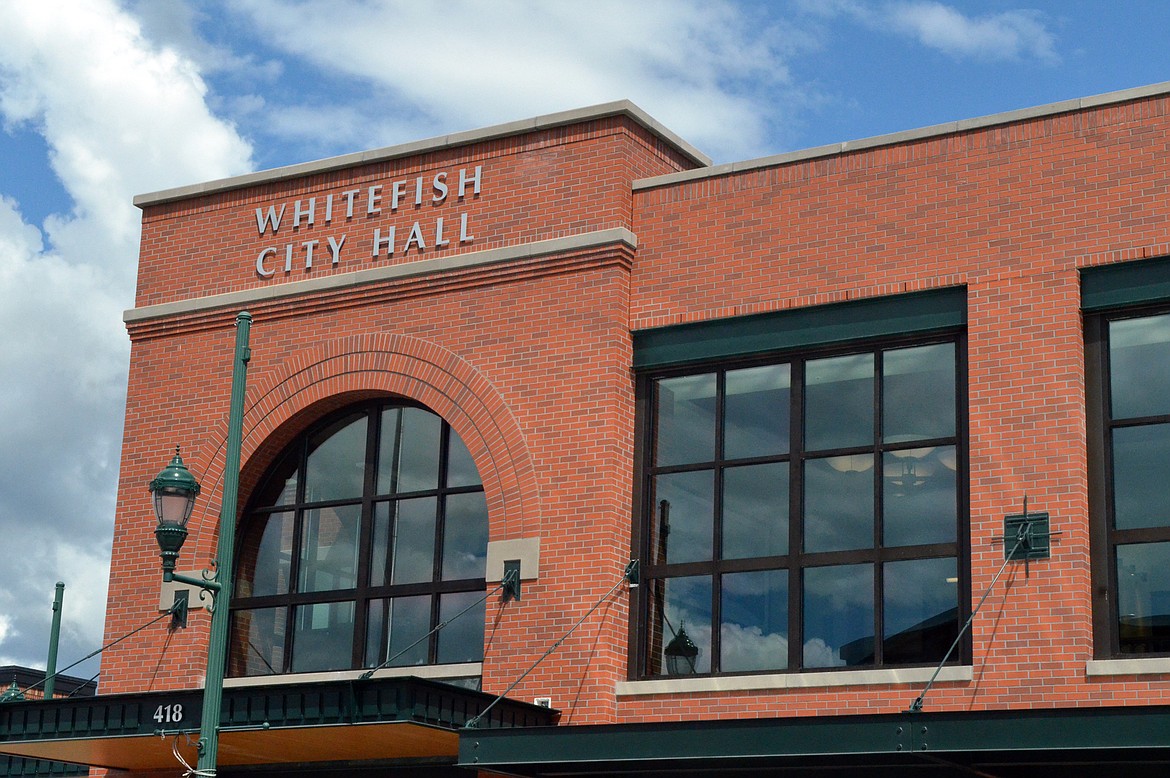Whitefish council to enact Stage II fire restrictions, consider marijuana rules
CHAD SOKOL | Hagadone News Network | UPDATED 4 years, 6 months AGO
New fire restrictions, affordable housing, recreational marijuana businesses and climate change top a busy Whitefish City Council agenda for Monday evening.
The council is set to vote on an emergency ordinance enacting Stage II fire restrictions immediately due to hot and dry conditions and extreme wildfire risk in the region. Such restrictions already are in effect on county, state and federal lands throughout Northwest Montana.
Stage II restrictions strictly prohibit campfires and fireworks everywhere in city limits, as well as the operation of motorized vehicles off designated roads and trails. The restrictions also ban the use of all internal combustion engines, welding equipment, torches and explosives from 1 p.m. to 1 a.m., and a one-hour foot patrol through the work area will be required after any of those activities.
Smoking will be allowed only within enclosed vehicles and buildings, or while stopped in an area that's cleared of flammable material at least 3 feet in diameter.
Residents on private properties in Whitefish may use gas grills that can be quickly turned on and off, as well as gas-powered generators with spark-arresting devices, if the areas around them are properly mowed and cleared of flammable materials.
ALSO DURING the regular meeting, the council will consider a proposal to amend the city's Legacy Homes Program, which required developers of certain subdivisions, multifamily housing projects and mixed-use developments to keep a portion of the new units affordable for the local workforce by using deed restrictions to limit prices.
Gov. Greg Gianforte signed a bill in April that prohibits cities from requiring developers to dedicate land or pay fees for inclusionary zoning programs, even if the developers receive more favorable building conditions in return. The bill, which passed both the chambers of the Republican-controlled Legislature on near-party-line votes, was backed by building and real estate industry groups and opposed by city leaders who said it strips them of local decision-making authority.
"The bill rendered the Legacy Homes Program unenforceable as written, thus the city can no longer require developers to deed-restrict portions of new subdivisions and multifamily projects for long-term affordability, nor can it require land donations or cash-in-lieu fees," city staff wrote in a report to the Whitefish Planning Board and the City Council. "Staff is proposing to amend the program into a voluntary one with reduced eligibility requirements to receive the incentives."
The city Planning Board unanimously endorsed the proposed changes after a public hearing on July 15. The City Council will hold another public hearing Monday evening before voting whether to make the changes final.
"In the near future, the city can look into providing additional incentives, including financial incentives such as impact fee reimbursement for deed-restricted units, if funding can be identified," the memo states.
BEFORE THE regular meeting, the council will hold a work session to discuss potential zoning regulations that would determine where cannabis growers, producers and retailers can set up shop within city limits. The council can't make any binding decisions during work sessions.
The planned discussion follows the passage last November of Initiative 190, which legalized recreational marijuana use statewide for people 21 and older, and the signing of a bill in May that refines the state's taxation and regulation of the new industry.
Medical marijuana dispensaries currently are prohibited from opening storefronts in Whitefish. Dave Taylor, the city's planning director, wrote in a memo to the council that his department needs direction on how to implement the new state law.
Taylor is asking the council to clarify which of the city's zoning classifications should allow for cannabis retail and cultivation businesses.
The new state law already prohibits pot shops from opening within 500 feet of public schools and places of worship, as measured from entrance to entrance. Dispensaries can't have drive-up windows or vending machines; they must have single, secure entrances and operate only between 9 a.m. and 9 p.m.
ALSO DURING the work session, the council will consider creating the position of sustainability coordinator within the city government. That person would be responsible for helping implement the city's Climate Action Plan, the overarching goal of which is to reduce city facility emissions by 26% by 2025, using 2016 emissions as a baseline.
Hiring a sustainability coordinator is a top priority for members of the city's Climate Action Plan Standing Committee, who last year relied on five volunteers from the Montana Energy Corps — an AmeriCorps program that no longer exists in the state, according to council meeting documents.
"A recent national planning report indicates communities with dedicated sustainability staff have higher rates of success implementing their climate action plans," the documents state.
The documents note Montana is experiencing record drought, wildfires, heat waves and unhealthy air quality due to human-caused climate change.
The cities of Bozeman, Missoula, Red Lodge and Helena each have at least one sustainability-focused position, as do Missoula County and the cities of Moscow, Idaho; Breckenridge, Colorado; and Moab, Utah.
The council's work session will begin at 5:45 p.m. followed by the regular meeting at 7:10 p.m. in City Hall. The council's full agenda and instructions for tuning in via Webex video conferencing can be found on the city's website.
Assistant editor Chad Sokol may be reached at 406-758-4439 or [email protected].
ARTICLES BY CHAD SOKOL
Forest Service approves large project near Tally Lake
Forest Service approves large project near Tally Lake

State seeking public input after purchase of Somers Beach
The Montana Department of Fish, Wildlife and Parks said Thursday it has completed the purchase of a 106-acre swath of land on the north shore of Flathead Lake.

County approves bid for new animal shelter building
The Flathead County commissioners on Tuesday awarded a $446,900 contract for the construction of a new multipurpose building at the county's animal shelter.

